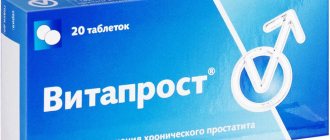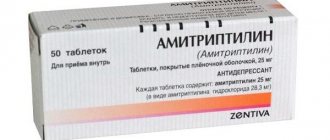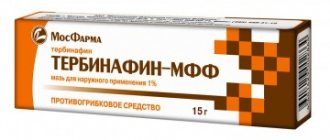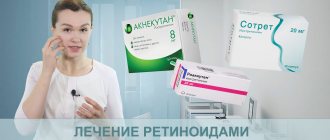In the article we will look at modern analogues of Biseptol.
The drug is a combination drug from the group of sulfonamides. It contains trimethoprim and sulfamethoxazole. Biseptol has a wide range of effects. This bactericidal medication causes the death of microbial cells, but has nothing to do with antibiotics. The effect of the drug is due to the fact that it blocks the synthesis of folic acid, without which microbial cells cannot divide. Sulfamethoxazole and trimethoprim complement each other and enhance this mechanism.
You will be interested in: "Betadine", solution: instructions for use, indications and reviews
We will not consider in detail the instructions for Biseptol analogues.
Pharmacodynamics and pharmacokinetics
The therapeutic effect of the drug is realized in two ways. The first component of the active substance, trimethoprim, inhibits the activity of an enzyme involved in folic acid metabolism. Second, sulfamethoxazole has a bacteriostatic effect. Also, both of these components interfere with the formation of nucleic acids and purine bases, which are necessary for the reproduction and growth of bacterial cells.
Biseptol penetrates the systemic bloodstream, absorbed through the mucous membrane of the digestive tract. The drug is excreted in the urine.
Information about this drug
"Biseptol" is active against staphylococci, streptococci, pneumococci, dysentery and typhoid bacilli, Proteus, salmonella, plasmodia and the causative agent of leishmaniasis. It should also be used against meningococci, Vibrio cholerae, actinomycetes, Klebsiella, chlamydia, the causative agent of diphtheria, gonococci and some types of fungi. The presented drug is ineffective against Pseudomonas aeruginosa, the causative agent of leptospirosis and tuberculosis. "Biseptol" has a persistent effect on microorganisms that are resistant to various sulfonamide drugs.
You may be interested in: Diseases of the esophagus: causes, symptoms, diagnosis and treatment
Biseptol is absorbed very quickly and well, reaching maximum concentration three hours after administration. The therapeutic concentration of this drug can be maintained for up to seven hours. This medication easily penetrates biological fluids and enters saliva, bile, cerebrospinal fluid, and also into sputum, kidneys, prostate gland and lungs. It is excreted from the body mainly through urine.
Analogues cheaper than Biseptol are of interest to many.
What does Biseptol help with and indications for use?
The drug is prescribed for infectious diseases of most organs and systems, namely:
- Diseases of the gastrointestinal tract: gastroenteritis, colitis, salmonellosis, cholera, typhoid fever and paratyphoid fever.
- Otorhinolaryngological pathology: laryngitis, sore throat, otitis, sinusitis.
- Infectious lesions of the lungs and respiratory tract: acute and chronic bronchitis, pneumonia, exacerbation of bronchiectasis.
- Diseases of the genitourinary system: urethritis, cystitis, prostatitis, pyelonephritis, gonorrhea.
- Dermatological pathology: acne, boils, pyoderma.
Cheap analogues of Biseptol
"Biseptol" is an antibacterial drug for systemic use, which is made on the basis of two active ingredients: trimethoprim and sulfamethoxazole. It is prescribed for the treatment of infectious and inflammatory diseases caused by drug-sensitive microorganisms. The cost of Biseptol ranges from one hundred to three hundred and fifty rubles. This drug has cheaper analogues, for example:
- Today, “Co-trimoxazole” is one of the analogues of “Biseptol” in tablets with the same release forms and indications for use. This is a Russian drug. This substitute uses the same active ingredients in a similar dosage. This drug is prescribed for infections of the respiratory system, skin, urinary tract and so on. The cost ranges from twenty-five to fifty rubles.
- Medicine "Bikotrim". This analogue of Biseptol is a broad-spectrum antibacterial drug. It contains two active ingredients: sulfamethoxazole and trimethoprim. This analogue is prescribed for the treatment of infectious diseases of various localizations, namely: bronchitis, lung abscess, pneumonia, prostatitis and cystitis. In terms of cost, Bicotrim is significantly more profitable than Biseptol. Its price is about fifty rubles.
In addition to analogues, Biseptol has many modern substitutes.
Side effects and overdose
Taking the drug may be accompanied by the development of many unwanted reactions. Most often, dizziness, loss of appetite, dyspeptic syndrome (nausea, vomiting, stool disorders), pain in muscles and joints occur.
More rare side effects are depression, apathy, insomnia, bronchospasm, gastritis, hepatitis, agranulocytosis, anemia, nephropathy, decreased plasma glucose levels.
It is also possible to develop various allergic reactions.
An overdose can be accompanied by all of the listed symptoms. The clinic is also supplemented by an increase in body temperature, abdominal pain, the appearance of a jaundiced coloration of the skin, and disturbances in vision and consciousness.
First aid: intramuscular injection of 5-15 mg of calcium folinate and trimetropim.
How to replace the drug correctly?
Today there are many substitutes for this antibacterial medication. Taking into account the contraindications and strength of action, the doctor helps you choose the best option. For example, when respiratory infections occur, it is best to replace Biseptol with Amoxicillin. With the development of pyelonephritis, experts often prefer substitutes in the form of Nolicin, Furamag, Furadonin and Furazolidone.
- The antibacterial agent "Nolitsin" belongs to the group of fluoroquinols. It is produced in the form of tablets with a dosage of 400 milligrams. The active ingredient, norfloxacin, accumulates mainly in the kidneys. The Russian analogue of Biseptol is quite popular.
- The antimicrobial drug "Furamag" belongs to the group of nitrofurans and is produced in capsules. It disrupts the biochemical process in the cells of pathogenic organisms, causing them to die. This medicine is active against many different bacteria, including mycoplasma.
- The antimicrobial drug "Furadonin" is produced in the form of tablets of 50 or 100 milligrams. This medicine destroys the outer shell of pathogenic microorganisms, thus preventing the spread of infection.
- A medicine called Furazolidone has high antibacterial activity. This drug relieves patients from inflammatory processes that can occur in the organs of the urinary system. Thus, it is advisable to use it for diseases caused by salmonella, some protozoa and mycoplasma.
- The drug "Amoxicillin" is classified as an antibiotic from the penicillin group. This drug can destroy the cell membrane of staphylococci, streptococci, E. coli and other harmful bacteria. The medicine is produced in capsules of 250 and 500 milligrams. "Amoxicillin" begins to act actively after half an hour. The duration of exposure lasts for eight hours.
We continue to consider analogues of Biseptol.
Instructions for use of Biseptol
The dosage and frequency of use are prescribed by the doctor.
On average, one course of treatment for an adult patient requires 960 mg of the drug in one or two doses. Complicated infectious diseases may require increasing the duration of therapy to 1-2 weeks.
The drug is approved for use in children.
The suspension can be prescribed to babies starting from 3 months at a dosage of 2.5 to 20 ml per dose, depending on the weight and age of the child.
Tablets can be used from 3 years of age. The dosage ranges from 120 to 480 mg per day.
How to use Biseptol for children?
In some countries, for example, in England, Biseptol is used to treat children only from the age of twelve. In our country, this drug is successfully used to treat young children. In pediatrics, Biseptol is used in the treatment of various infections, for example, in the treatment of the respiratory system, urinary tract, intestinal disorders, and the like. This medication is also used in adolescence, and, in addition, for the treatment of young patients, starting from three months. The main condition for treatment is strict adherence to the dosage. Analogs of children's Biseptol will also be presented.
For babies it is produced in the form of syrup, as well as in the form of a suspension. The suspension can be used from three months of age, and the syrup is suitable for use after a year. It is advisable to use tablets of this drug after two years, and injections after six. Biseptol suspension is prescribed at the rate of 30 milligrams of sulfamethoxazole and 6 milligrams of trimethoprim per kilogram of body weight per day.
You may be interested in:Hysterical neurosis - causes, symptoms, diagnosis and treatment features
Children whose age is from three to six months need to take a suspension of 2.5 milliliters twice every twelve hours. At the age of seven months to three years, take 2.5-5 milliliters of the suspension twice. From four to six years old, take 5-10 milliliters every twelve hours. From seven to twelve years of age, children are prescribed 10 milliliters of the drug twice a day. Adult children over twelve years of age take 20 milliliters every twelve hours.
During treatment with Biseptol, parents should ensure that the child drinks plenty of fluids. During the period of therapy, it is necessary to limit the consumption of sweets, and, in addition, confectionery products. It is recommended to give children vitamin complexes. It should also be noted that parents should not use this medicine on their own. Therapy should be carried out as prescribed by a pediatrician and with his constant supervision.
Now let's move on to considering modern medications that can replace Biseptol if necessary. Let's start with cheap analogues.
Drug interactions
Biseptol interacts with a large number of drugs. It improves efficiency:
- hypoglycemic agents;
- methotrexate;
- indirect anticoagulants.
Reduces the effectiveness of oral contraceptives.
The simultaneous use of hypoglycemic drugs and Biseptol can provoke the development of cross-allergy. And treatment with benzocaine, procaine and procainamide blocks the effect of the drug.
The interaction with alcohol has not been fully studied at the moment, so it is recommended to abstain from drinking alcohol during therapy.
Contraindications to the use of this medication
The drug "Biseptol" is not used for treatment in the following cases:
- In the presence of severe heart and vascular insufficiency.
- Against the background of diseases of the hematopoietic organs.
- In case of liver failure.
- Against the background of severe kidney failure.
- With deficiency of glucose phosphate dehydrogenase.
- Children less than three months old, and, in addition, premature babies.
- In case of elevated bilirubin levels in children.
- Due to hypersensitivity to the ingredients that make up the drug, or to other sulfonamide medications.
Biseptol can be used with great caution if the patient has previously been allergic to other medications. It is also better to abstain from Biseptol for bronchial asthma and for patients with a lack of folic acid in the body. If you have thyroid disease, as well as in old age, the drug should be taken with caution. Treatment with Biseptol must be carried out under strict medical supervision, carefully monitoring blood tests.
Next, we will learn about the use of Biseptol for the treatment of children and find out at what age this drug can be used for young patients.
Sulfonamide agents as a substitute
The most similar in composition, and, in addition, in terms of their effect on the body, are the sulfonamide drugs “Fthalazol”, “Asacol”, “Streptotsid”, “Sulfadimethoxin”, “Enterofuril” and “Sulfalen”. But most of the drugs do not have such a wide spectrum of action on pathogenic bacteria as Biseptol:
- A good and fast-acting remedy is the drug “Enterofuril”. It can be considered an analogue of Biseptol syrup. It has a pronounced antibacterial and anthelmintic effect. The active ingredients lead to the rapid death of parasites by blocking their respiration and by destroying the outer shell. This drug has a detrimental effect on streptococci, salmonella and staphylococci. This medicine is highly effective in the treatment of amebiasis and giardiasis.
- The medical product “Sulfadimethoxine” is a modern antibacterial drug that fights protozoa and bacteria, including toxoplasma and chlamydia. This is a proven Russian analogue of Biseptol. The following treatment regimen is prescribed: on the first day they drink 1 gram of the active substance, and in the next six days they take 0.5 grams. The course of therapy should be one week.
- The drug "Streptotsid" is an antimicrobial drug from the sulfonamide group. This medication stops the growth and, in addition, the reproduction of bacteria that cause various infectious and inflammatory processes.
- The drug "Dvaseptol" is successfully used in the treatment against infectious processes that occur in the digestive, respiratory and urinary systems. The drug is available in tablets of 120 mg and 480.
You may be interested in: Von Willebrand's disease: causes, symptoms, diagnosis and treatment features
Analogues of Biseptol should be selected by a doctor.
Answers on questions
- Can Biseptol be taken with alcohol or not?
No, when using the medicine and alcohol-containing drinks together, the risk of side effects and complications increases.
- Does Biseptol help with sinusitis or not?
According to the instructions, the medication is used for sinusitis. Efficiency is determined by the correct selection of the drug based on resistance, type of pathogen, and other factors.
- How to replace Biseptol for a child?
A synonym for the drug is Co-trimoxazole tablets 120 mg, Bactrim syrup. All replacements should be made exclusively with a pediatrician.
- Is it possible to replace Erespal?
The drugs Erespal, Epistat and Erispirus have been discontinued and are no longer supplied to Russian pharmacies due to serious side effects.








